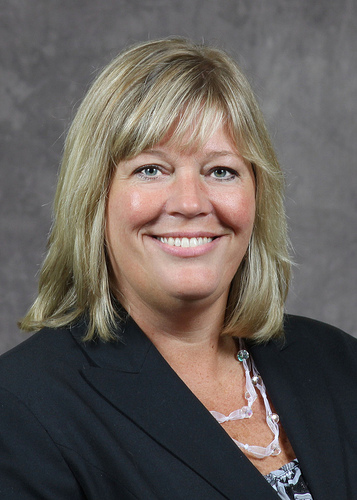 Guest Contributor: Cheryl Nash, President, Investment Services, Fiserv
Guest Contributor: Cheryl Nash, President, Investment Services, Fiserv
A recent multigenerational survey from TIAA-CREF reveals financial advice has the highest impact on Millennials, the 77 million young Americans who, according to Nielsen, represent 24 percent of the U.S. population. A somewhat surprising statistic when the profile of this demographic is “I’ve got it; I can do this myself; don’t need (your)help,” as my own children, in this age group, often say.
The TIAA-CREF survey also reveals that most Millennials prefer to use technology-based communications with financial advisors, and more than 75 percent of Millennials want to receive financial advice specifically tailored to their needs – like paying for college, managing student loans and other debt, as well as long-term retirement planning.
In the midst of this evolving landscape, Fiserv sees financial advisors looking for innovative technology to engage Millennials, with the primary objective to establish credibility and trust with these young clients. The advisory firms we serve as clients are, more and more, seeking our expertise for online financial planning tools and calculators, which are proving to be powerful advisor-client icebreakers and, when used properly, can help accelerate strong connections which enable the progressive delivery of financial advice over time.
As Millennials continue to enter their prime years as investors, financial services organizations have a clear business imperative to optimize their use of technology. With this in mind, here are five tips based on best technology practices that can help wealth management firms engage Millennials:
- Use financial planning portals with client-facing options – Millennials want customized plans, so financial advisors must be very flexible in order to meet the individual needs of each client. Modern technology enables financial advisors to simultaneously leverage collaborative client-facing and advisor-facing portals – while seamlessly aggregating data from both. This opens opportunities with three distinct groups: 1) Millennials who prefer a “do it yourself” (DIY) approach to investing; 2) Millennials who prefer an advisor-driven approach; 3) Millennials who want a hybrid DIY/advisor-driven approach.
- Immediately master your skills on tablets and other mobile devices – For a large percentage of Millennials, personal computers and laptops are already outdated gadgets. Accordingly, financial advisors must communicate with Millennials through the mediums that are most relevant to them. The best bets are tablets and smartphones, which are compatible with most client-facing portals. Additionally, top portals have integrated Mobile Apps that will help you score points with Millennials.
- Establish reasonable financial goals using technology – Millennials are sometimes known for having a “my way or the highway” approach to life, especially when it comes to their money. Financial advisors should be careful about passing premature and harsh judgments about these young, but fiercely independent investors’ goals. Go through the financial planning process, and let modern technology do the talking: best-in-class portals can graphically illustrate how Millennials’ lifetime goals stack up against their financial situations. Budgetary shortfalls and overly-ambitious objectives can be sensibly addressed through “What If” scenario planning, enabling collaboration with Millennials to findmiddle-ground alternatives.
- Use social media to showcase thought leadership – It’s important to establish a robust presence on popular social media outlets like LinkedIn, Facebook, Twitter and YouTube. Millennials want to see that their advisor is plugged into social media, and that s/he uses these outlets to share expertise as a wealth manager – not to dispense sales pitches. Financial advisors should share original content, including infographics, charts and video clips, but keep comments short and sweet. They should also post links to high-quality websites and news stories that have updates on financial trends, expert research and data.
- Never come across like a salesperson –Overly-aggressive financial advisors and Millennials are like oil and water. They do not mix well because Millennials are naturally skeptical and like to be in control. When conversing with Millennials, let them do most of the talking upfront, and simply listen and respond as appropriate; this will help better gauge expectations and the level of engagement required for meeting these expectations. Always be prepared with immediate evidence to validate talking points, as Millennials expect you to back up advice with proof points.
For more information about Millennials, check out these recommended resources:
- Millennials: Technology = Social Connection – Nielsen (February 2014)
- 2013 Financial Advice Survey – TIAA-CREF Financial Services (December 2013)

Leave a Reply